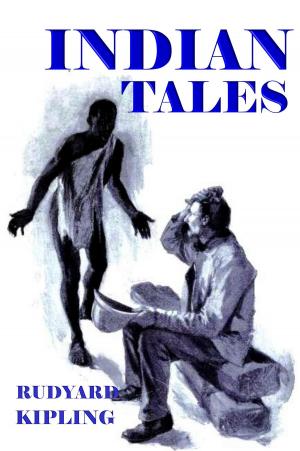The Adventures of Ulysses
The Wanderer
Nonfiction, History, Ancient History, Greece, Science Fiction & Fantasy, Historical| Author: | C. Ranger-Gull | ISBN: | 1230000106130 |
| Publisher: | AMN Publishing | Publication: | February 11, 2013 |
| Imprint: | Language: | English |
| Author: | C. Ranger-Gull |
| ISBN: | 1230000106130 |
| Publisher: | AMN Publishing |
| Publication: | February 11, 2013 |
| Imprint: | |
| Language: | English |
Ulysses. The hero of Homer’s great poem was known to the Greeks under the name of Odysseus. He was king of the pastoral islands of Ithaca and Dulichium. Most of the petty Greek chieftains became suitors for the hand of the beautiful Helen, and Ulysses was among the number, but withdrew when he realised the smallness of his chances. He then married Penelope, the daughter of Icarius, and at the same time joined with the other unsuccessful lovers of Helen in a sworn league for her future protection should she ever stand in need of it. He then returned to Ithaca with his bride. The rape of Helen soon compelled him to leave Penelope and join the other Grecian princes in the great war against Troy. He endeavoured to avoid the summons by pretending madness. Yoking a horse and a bull together, he began to plough the sands of the sea shore. The messenger who was sent to him took Telemachus, the infant son of Ulysses, and placed the child in the direct course of the plough, in this way circumventing his design. Ulysses was one of the most prominent figures during the Trojan war, his valour, and still more his cunning, making him of supreme importance in the councils of the princes. After the Trojan war Ulysses set sail for home, and at this period of his career the story of the Odyssey begins. He was driven by malevolent winds on to the shores of Africa, where he and his mariners were captured by the one-eyed giant, Polyphemus, who ate five of the band. Ulysses escaped by thrusting a stake into the giant’s eye and then leaving the cave in which he was confined by crawling under the bellies of the sheep when the Cyclops led them to pasture. He next arrives at Æolia, and Æolus gave him, imprisoned in bags, all the evil winds which were likely to obstruct his safe return homewards. The sailors, curious to know what the bags contained, opened them, and the imprisoned winds, rushing out with fearful violence, destroyed the whole fleet save only the vessel which bore Ulysses. The ship was thrown on the shores of the Goddess Circe’s enchanted island, and the companions of Ulysses were changed into swine by the enchantress. Ulysses escaped the like fate by means of a magic herb he had received from Mercury, and forced the goddess to bring his friends to their original shape. He then yielded to her solicitations and made her the mother of Telegonus. The next stage of his adventures brings him to Hades, where he goes to consult the shade of the wise Tiresias as to the means of reaching home in safety. He passes the terrible coasts of the Sirens unhurt, and escaped the monsters Scylla and Charybdis by a series of narrow chances. In Sicily his sailors, urged by extreme hunger, killed some of Apollo’s cattle, and the Sun-God in revenge destroyed all his companions and also his ship. Ulysses alone escaped on a raft and swam to the shores of an island belonging to Calypso, with whom he lived a lotos life as husband for seven years. The gods eventually interfered, and Ulysses, once more properly equipped, set out on his travels again. However, Neptune (Poseidon), the lord of the sea, still remembered the injury done to his son, the giant Polyphemus, and wrecked this ship also. Ulysses was cast up on the island of the Phœacians, where he was hospitably received by King Alcinous and his daughter the Princess Nausicaa, and at last sent home in safety to his own kingdom after an absence of more than twenty years. The Goddess Athene befriended him, and informed him that his palace was crowded with debauched and insolent suitors for the hand of Queen Penelope, but that his wife was still faithful and unceasingly mourned his loss. Adopting the advice of the goddess, he disguised himself in rags to see for himself the state of his home. He then slew the suitors and lived quietly at home for the remaining sixteen years of his adventurous life. Tradition says that he at last met his death at the hands of his illegitimate son Telegonus.
Ulysses. The hero of Homer’s great poem was known to the Greeks under the name of Odysseus. He was king of the pastoral islands of Ithaca and Dulichium. Most of the petty Greek chieftains became suitors for the hand of the beautiful Helen, and Ulysses was among the number, but withdrew when he realised the smallness of his chances. He then married Penelope, the daughter of Icarius, and at the same time joined with the other unsuccessful lovers of Helen in a sworn league for her future protection should she ever stand in need of it. He then returned to Ithaca with his bride. The rape of Helen soon compelled him to leave Penelope and join the other Grecian princes in the great war against Troy. He endeavoured to avoid the summons by pretending madness. Yoking a horse and a bull together, he began to plough the sands of the sea shore. The messenger who was sent to him took Telemachus, the infant son of Ulysses, and placed the child in the direct course of the plough, in this way circumventing his design. Ulysses was one of the most prominent figures during the Trojan war, his valour, and still more his cunning, making him of supreme importance in the councils of the princes. After the Trojan war Ulysses set sail for home, and at this period of his career the story of the Odyssey begins. He was driven by malevolent winds on to the shores of Africa, where he and his mariners were captured by the one-eyed giant, Polyphemus, who ate five of the band. Ulysses escaped by thrusting a stake into the giant’s eye and then leaving the cave in which he was confined by crawling under the bellies of the sheep when the Cyclops led them to pasture. He next arrives at Æolia, and Æolus gave him, imprisoned in bags, all the evil winds which were likely to obstruct his safe return homewards. The sailors, curious to know what the bags contained, opened them, and the imprisoned winds, rushing out with fearful violence, destroyed the whole fleet save only the vessel which bore Ulysses. The ship was thrown on the shores of the Goddess Circe’s enchanted island, and the companions of Ulysses were changed into swine by the enchantress. Ulysses escaped the like fate by means of a magic herb he had received from Mercury, and forced the goddess to bring his friends to their original shape. He then yielded to her solicitations and made her the mother of Telegonus. The next stage of his adventures brings him to Hades, where he goes to consult the shade of the wise Tiresias as to the means of reaching home in safety. He passes the terrible coasts of the Sirens unhurt, and escaped the monsters Scylla and Charybdis by a series of narrow chances. In Sicily his sailors, urged by extreme hunger, killed some of Apollo’s cattle, and the Sun-God in revenge destroyed all his companions and also his ship. Ulysses alone escaped on a raft and swam to the shores of an island belonging to Calypso, with whom he lived a lotos life as husband for seven years. The gods eventually interfered, and Ulysses, once more properly equipped, set out on his travels again. However, Neptune (Poseidon), the lord of the sea, still remembered the injury done to his son, the giant Polyphemus, and wrecked this ship also. Ulysses was cast up on the island of the Phœacians, where he was hospitably received by King Alcinous and his daughter the Princess Nausicaa, and at last sent home in safety to his own kingdom after an absence of more than twenty years. The Goddess Athene befriended him, and informed him that his palace was crowded with debauched and insolent suitors for the hand of Queen Penelope, but that his wife was still faithful and unceasingly mourned his loss. Adopting the advice of the goddess, he disguised himself in rags to see for himself the state of his home. He then slew the suitors and lived quietly at home for the remaining sixteen years of his adventurous life. Tradition says that he at last met his death at the hands of his illegitimate son Telegonus.















